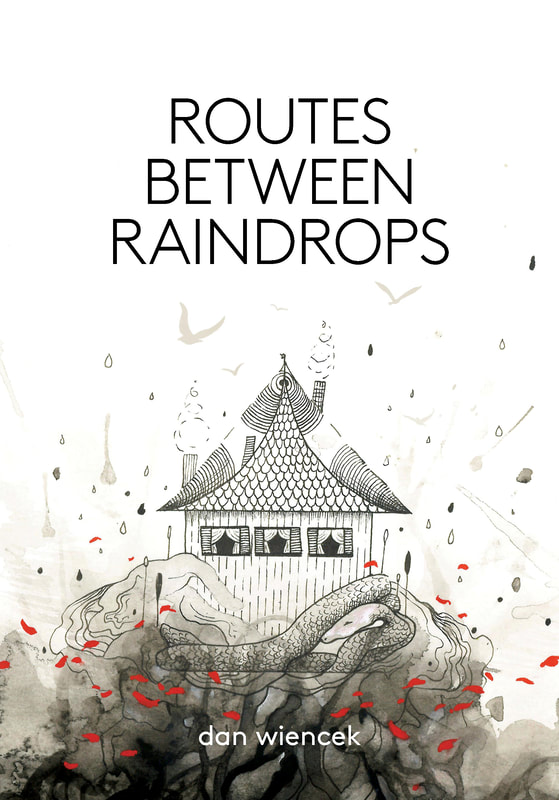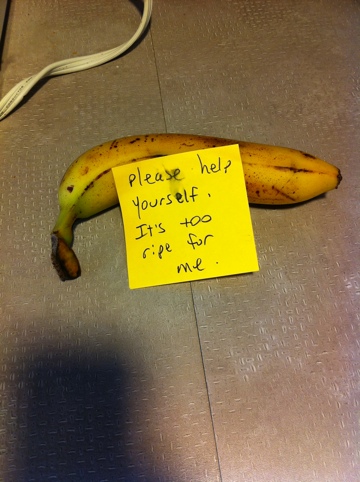Two of my most recent poems, “I Would Be an Ally to You” and “Tell Me Something About You No One Else Knows,” were recently published by Stone Poetry Quarterly. Check ’em out.
Post Category → Writing
My first collection, “Routes Between Raindrops,” is available for purchase
I am thrilled, chuffed and delighted to announce the publication of my first collection of poems, Routes Between Raindrops. It’s available now from First Matter Press and Amazon.

The poems in this book stem mostly from 2016–19, when I joined the Eastside Poetry Workshop here in Portland. A few pieces predate it; one goes back to 2006 or so. The cover art was created by Aleksandra Apocalisse specifically for the book (she was kind enough to add some extra birds for me).
Here is some advance praise, as they call it:
“In ROUTES BETWEEN RAINDROPS, Dan Wiencek searches through a feast of images, what was, what is, and what could have been, as well as what might yet be, as they shift back and forth between the common and the uncanny, the probable and the impossible alike. Wiencek calls us to recognize ourselves, through shifting tones and approaches, from the recognizable, such as baking bread, to the absurd, as in coming home to find a walrus in a pile of laundry or lampshades turning into birds, and all points in between. It’s a marvelously dislocated tour that we exist in, and co-create, as Wiencek writes, ‘Sky throws itself in everyone’s / faces, now you’re me, it says.’”
JOHN GALLAHER, AUTHOR OF IN A LANDSCAPE
“With his slantwise existential wit and his sleight-of-hand association and indirection, Dan Wiencek takes us on ‘a hypothetical guided tour’ through various surreal landscapes all the way to the present moment where you can ‘realize you’re looking at a star,/the mirage that dissolves at the eye’s touch.’”
CLAIRE BATEMAN, AUTHOR OF CORONOLOGY
“I love the way Wiencek perceives the world. Time and again, the speaker in his poems looks out to find it damaged but irresistible, like a friend endlessly returning with some new self-made malady, asking you to love them anyway. And Wiencek does. With a wry, self-aware, and tender humor— the poems put me in mind at times of Tony Hoagland’s— the writer rescues moments from the blur and frames them beautifully: an empty lot “[stares] up at the sun like a vast / gravel eye,”; a hand grasps empty air like “a furnace / starved of flame.”
GRADY CHAMBERS, AUTHOR OF NORTH AMERICAN STADIUMS
Two More Poems
I forgot to post this earlier in the year, but the April 2017 issue of The Blotter featured two of my poems, “Demonstration” and “Walking the Path.” The online version can be read at this link; you can find my work on pages 12-13.
I’m Like, I Said
Or, In Defense of a Much-Loathed Linguistic Trend
So I was talking to my boss the other day and I was like, “Does anyone know what they’re doing on this project?†And he was like, “I wish.â€
Now, what did I just say there?
People have been lamenting the decline of the verb to say for a surprisingly long time — at least as long as I’ve been around, which is enough. When I was growing up, the culprit was goes:
“So he goes, ‘What are you doing this weekend,’ and I go, ‘Going to a stupid family reunion’.â€
I never liked goes very much. As a writerly type, I always felt an obligation to speak properly, whatever that meant, and to not give in to imprecision, trends, laziness or other bad linguistic habits. (That doesn’t mean I correct other people when they do it, but that’s for another post.) In college I took some linguistics courses — well, all of two, but it didn’t take much to change the way I think about language. The thing that struck me most was the distinction linguists make between being descriptive and prescriptive. As far as I had always known, as far as I had ever been taught, the only relevant issues concerning writing, speaking and language related to what you should do. Don’t end a sentence with a preposition. (Actually, it’s OK to do that.) Avoid double negatives. Make positive statements rather than negative ones (“I forgot†versus “I didn’t rememberâ€). It hadn’t really occurred to me that it was possible to take a different stance: that of the impartial observer, dissecting the ways in which people bend and shape the language to suit their needs, just as they’ve been doing ever since they started talking. Continue reading
